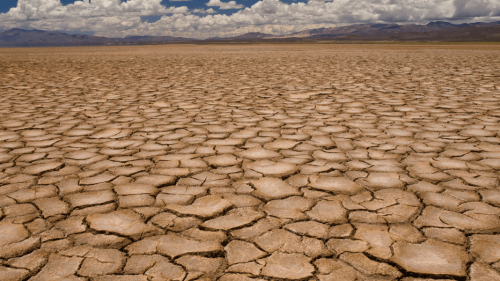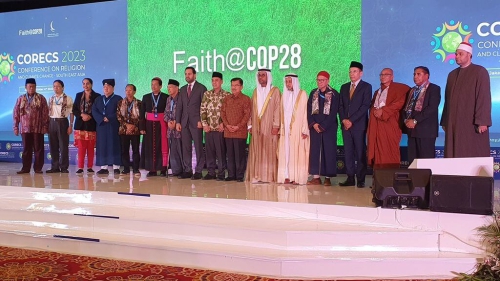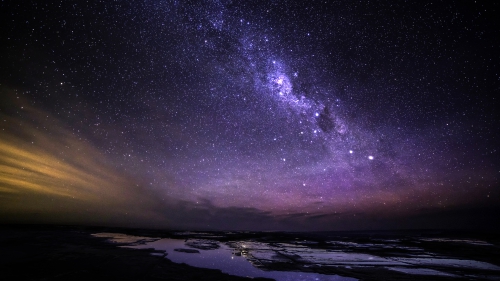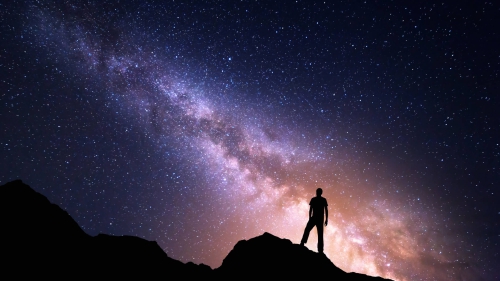‘The Power to Create a New World’: Trump and the Environmental Challenge Ahead
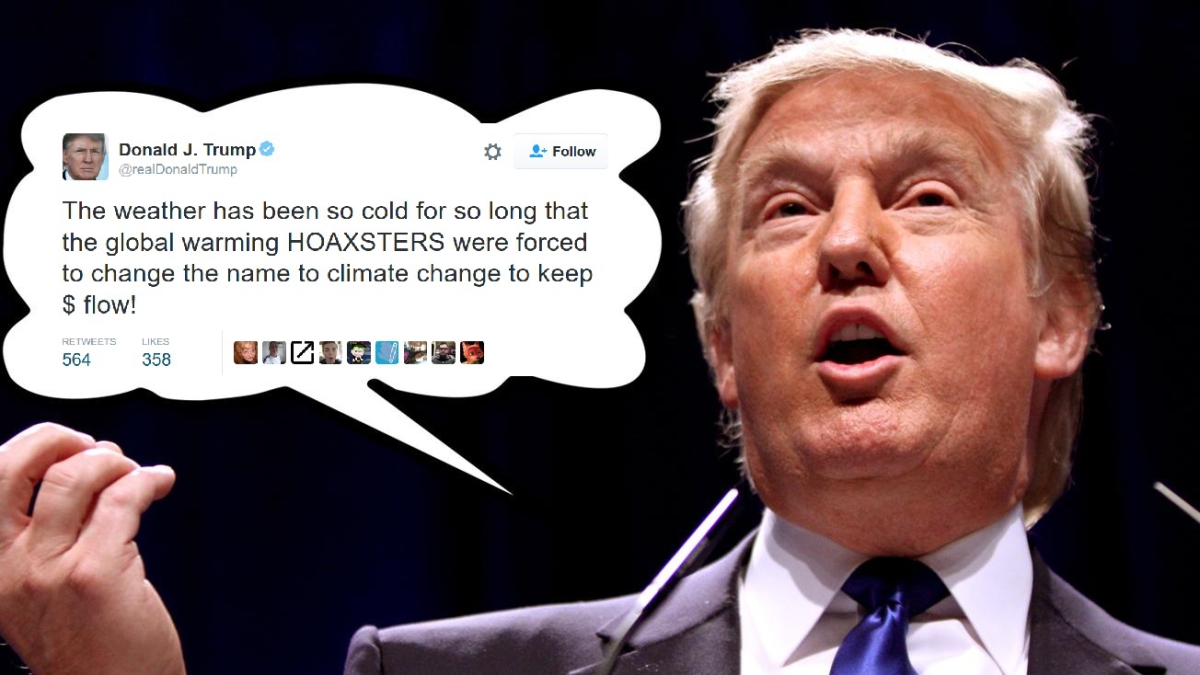
The catastrophic climate change is no longer a subject for argument, at least on a mainstream level within the science community. Yet, as temperatures continue to rise, American efforts to combat global warming, sadly seem to decline.
President Elect, Donald Trump is more concerned by the economic cost of combating global warming, and has repeatedly rejected United States’ role in the Paris Climate Agreement that took place in December of 2015.
In fact, Trump has pledged to end US involvement in the Paris climate deal, arguing that the main concern of the American government is the continuation of the construction of various pipelines, like that of Keystone XL Pipeline, as well as drilling, fracking, and so on, because it is “a big piece of profits” for the American people.
Of course, his statement is baseless and self-serving considering the ‘big piece of profits’ will mostly benefit American corporations and elites, not the American people.
Such arguments certainly complement Trump’s views which have historically been self-absorbed and hold little regard for the environment. Moreover, Trump had referred to climate change as a “hoax”. He explained in one of his numerous tweets: “The concept of global warming was created by and for the Chinese in order to make US manufacturing non-competitive.”
Trump’s eccentric views aside, the seriousness of global climate change has been taken for granted. The situation is too critical for political pandering and empty promises by large corporations.
A study conducted by Climate Central - which reports on the science and impact of climate change - identified 414 towns and cities within the United States that will become submerged no matter what climate action is taken as of now.
"Historic carbon emissions have already locked in enough future sea level rise to submerge most of the homes in each of several hundred American towns and cities," a report on the Climate Central’s website stated.
This devastating forecast includes some of the most condensed population centers in the United States, such as Miami and New Orleans.
According to the lead author of the study, Benjamin Strauss, if immediate action is not taken, New York is guaranteed to join the growing list.
“The most interesting thing to me is there are a great deal of cities where our carbon choices make a huge difference,” Strauss told the Huffington Post.
“To me this is really a question of our American legacy and American heritage: are we going to let the ocean take a state-sized bite out of America? If we make extreme efforts to cut carbon, we can avoid that.”
Alas, there are many in the media who are still parroting the ‘hoax’ theory.
Fox News host, Andrea Tantaros, argued with little knowledge against climate change scientists as she sarcastically asked her co-hosts: “How many Americans have died from climate change?”
Yet, according to Euro News report, citing scientific data: “Climate change will lead to 250,000 extra deaths a year from 2030.”
“The study, published by the World Health Organization (WHO), estimates around 48,000 will die from diarrhea, 60,000 due to malaria, 95,000 from childhood undernutrition, as well as 38,000 elderly people because of heat exposure.”
These numbers don’t include deaths that have already taken place due to intensified and abnormal weather conditions directly linked to climate change.
But Tantaros’s co-host, Melissa Francis seems to think that the whole science is a mere conspiracy. “I think this is all about the president (Barack Obama) wanting to make corporations the enemy,” she commented.
No conspiracies here, however. The US Environmental Protection Agency (EPA) had reported that as of 2014, US carbon emissions totaled 6,870 million metric tons (15.1 trillion pounds) of carbon dioxide equivalents.
NASA gives context to the numbers, stating on their website: “A minor but very important component of the atmosphere, carbon dioxide is released through natural processes such as respiration and volcano eruptions and through human activities such as deforestation, land use changes, and burning fossil fuels. Humans have increased atmospheric CO2 concentration by a third since the Industrial Revolution began. This is the most important long-lived ‘forcing’ of climate change.”
Grim as the forecasts maybe, there are reasons for hope as more nations are making steady strides for cleaner energy.
As of 2016, Germany’s overall economy already operates with 27% renewable energy. In fact, on May 8th of 2016, 95% of Germany’s energy consumption was reportedly met by renewables alone.
"Power prices actually went negative for several hours…meaning commercial customers were being paid to consume electricity," reported Quartz writer, Michael J. Coren.
But ordinary citizens are too making a difference. In January of 2016, the Standing Rock Sioux tribe initiated a mobilization effort to protest the construction of the Dakota Access Pipeline, a crude oil pipeline trailing from North Dakota to Illinois. The pipelines journey was meant to cut through the ancient burial grounds as well as threaten the water supply of the Standing Rock Sioux.
Native Americans from over 100 tribes and thousands of other protesters joined in solidarity to resist the destruction the pipeline would ensue. They were met with violence from the police force that quickly amassed, using concussion grenades, pepper spray, and police dogs and water cannons.
Through the determination of the ‘water protectors’, they managed to push for the rerouting of the pipeline; though they continue to protest the construction of the Dakota Access as a whole.
The US must heed calls for massive change of attitude towards renewable energy. In fact, by doing so, it is set to economically benefit from the change.
The Union of Concerned Scientists (UCS) had stated in a recent report that “compared with fossil fuel technologies, which are typically mechanized and capital intensive, the renewable energy industry is more labor-intensive. This means that, on average, more jobs are created for each unit of electricity generated from renewable sources than from fossil fuels.”
The organization also conducted a study that showed if the US meets the 25% renewable energy standard by the year 2025, 202,000 new jobs will be created. This number doesn’t include jobs that the renewable energy industry has already produced.
In addition, converting to renewable energy will create other economic development benefits.
According to UCS: “Local governments collect property and income taxes and other payments from renewable energy project owners…Owners of the land on which wind projects are built also often receive lease payments ranging from $3,000 to $6,000 per megawatt of installed capacity, as well as payments for power line easements and road rights-of-way. Or they may earn royalties based on the project’s annual revenues. Similarly, farmers and rural landowners can generate new sources of supplemental income by producing feedstocks for biomass power facilities.”
In December 2015, an historic Paris Agreement took place. During this event, global leaders claimed that they would prioritize tackling climate change, agreeing to reduce carbon emissions to remain “well below” increasing world temperature by a major 20C.
Understandably, skeptics question whether all 195 countries will hold up their part of the deal. For example, according to CNN, US oil output has nearly doubled over the past decade. Also, as of 2016, fracking (“a drilling technique used for extracting oil or natural gas from deep underground”) fuels half of the US oil output.
US Energy Information Administration (EIA) reported that fracking “has allowed the United States to increase its oil production faster than at any time in its history."
Thus it is not illogical to question the US commitment to the Paris agreement, especially when Trump hardly recognizes that there is a problem in the first place.
Rational voices like former presidential candidate, and Green Party nominee, Jill Stein must be listened to. Her seemingly ‘radical’ views are in fact the needed mindset to overcome the burgeoning challenge.
“Fracking has no place in our future. We will not survive our fossil fuel addiction. We need to transition to 100% clean renewables by 2030,” she tweeted recently.
She wrote, “This plan will end unemployment and poverty; avert climate catastrophe, build a sustainable, just economy; and recognize the dignity and human rights of everyone in our society and our world. The power to create this new world is not in our hopes, it’s not in our dreams - it’s in our hands.”
Time is running out for anyone to create yet more excuses as to why the US transition to renewables is difficult and long delayed. This selfish, corporate mindset has not only put the well-being of ordinary Americans at stake, but also that of the entire world – now and generations to come.
*****
Zarefah Baroud is a student at Cascadia College in Washington State. Her writing addresses subjects related to human rights and environmental issues.
Topics: Climate Change, Donald Trump, Nature And Environment
Views: 1902
Related Suggestions













